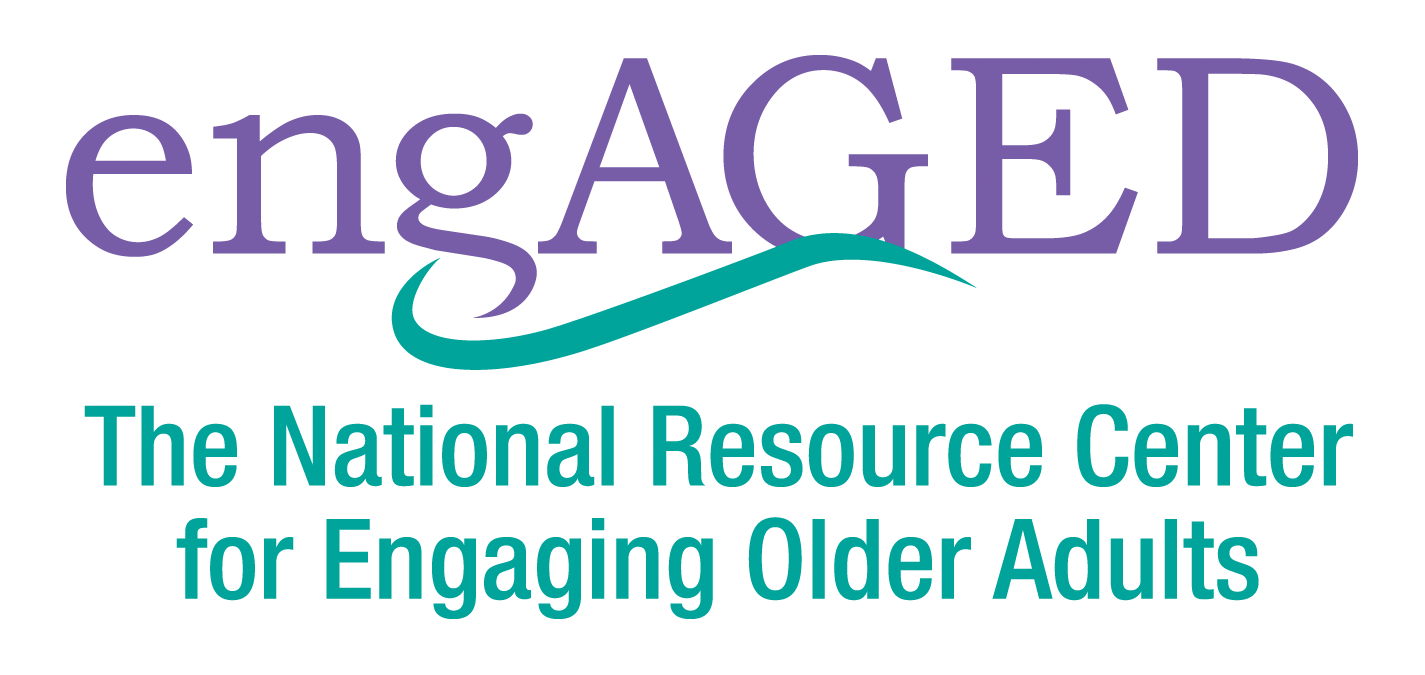Collaborating with Faith Communities on Social Engagement: Takeaways from the March engAGED Webinar
Faith communities can be a trusted source of information and are uniquely positioned to engage older adults and caregivers, a practice that enhances the well-being of both older adults and their communities. The March engAGED webinar highlighted ways in which the Aging Network and faith-based communities work together to create opportunities for social engagement.
Partnering with Faith Communities to Support Caregivers
AgeOptions, an Area Agency on Aging based in Oak Park, IL, developed the Caring Together, Living Better (CTLB) program to support and empower African American and Latinx family caregivers. Recognizing that African American and Latinx communities may be more likely to access services through their places of worship than traditional social service agencies, AgeOptions partnered with faith-based organizations to provide caregivers with resources, education and community through CTLB. Currently, AgeOptions works with five partner sites and will soon be onboarding a sixth. Each partner site includes two CTLB volunteer leads who serve as community experts. AgeOptions funds, coordinates and provides oversight and support to the partners, while the partners facilitate culturally competent social engagement activities such as a volunteer friendly visitor phone program, book nook clubs and other activities.
AgeOptions shared the following tips and strategies to guide other organizations as they develop relationships with the faith community.
Ensure that the faith community you are partnering with knows the needs of caregivers and their communities.
Build partner trust and buy-in. This can take time, so patience is key. Always listen to feedback from partners and make changes accordingly.
Maintain collaborations with faith-based organizations through sharing of resources like upcoming events or webinars, making plans for long-standing partnerships to impact congregations for years to come, building on successes and practicing active listening.
Partnering with Churches to Support Older Adult Volunteers
Older adult volunteers in the AmeriCorps Seniors, Senior Companion Program provide social connection and in-home assistance to other older adults to help them live independently in their homes. For the Lutheran Social Service of Minnesota Senior Companion Program, which mobilizes older adult volunteers throughout western ND, a physical space or station for the volunteers to congregate in between visits is essential to program sustainability. There are typically churches in smaller, more rural towns that may not have any social service agencies. Churches emerged as an accessible option for volunteer stations. Serving as volunteer stations is yet another way churches can reach the community, and the Senior Companion Program is an option for parishioners to join as either a participant or volunteer. The Senior Companion Program’s partnership with churches across the state contributes to program sustainability in smaller communities and continued social engagement opportunities for isolated older adults in rural areas.
Tips to Collaborate with Faith Communities
To help organizations build partnerships with faith communities such as churches, synagogues, mosques and other religious organizations, USAgainstAlzheimer’s offered the following tips.
Identify key faith leaders, congregations and organizations within your community. If you aren’t sure where to begin, your local interfaith council can be a good place to start. Then find the right person within the faith organization, whether that is a member of the clergy or laity, a community relations liaison, or someone else who is interested in and motivated to collaborate.
Identify the best messenger within your organization. This might be someone of the same denomination or with a similar faith background.
Learn about the needs and capacity of the faith community. Listening and learning shows respect.
Offer tailored resources or host events. Faith communities may have limited resources and multiple priorities so providing resources or hosting an event is helpful and welcome.
Consider a donation or event sponsorship like a coffee or speaker series.
Allow time to build relationships. Sustainable collaborations take time and trust.
Additional Resources
To learn more about collaborating with faith communities and ways your organization can create similar partnerships, listen to the webinar recording and view the webinar slides.
